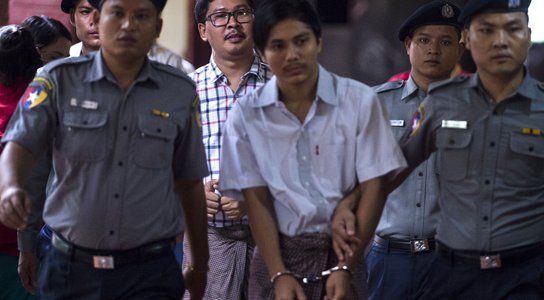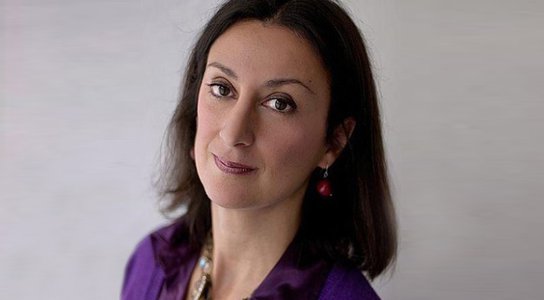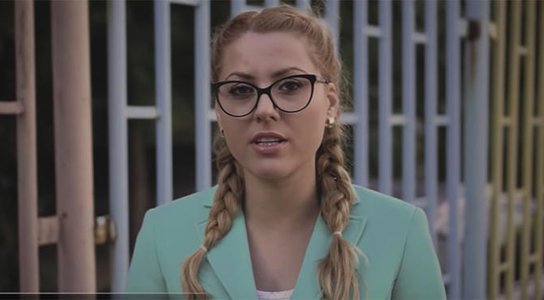This is the first time Global Witness has marked the Day to End Impunity for Crimes Committed Against Journalists. But after the year we’ve just had, staying silent isn’t an option.
Just last week the staff at CNN’s New York Bureau had to evacuate when a bomb turned up at their offices. On Wednesday, President Trump made grand statements about how "threats of political violence of any kind have no place" in the U.S. But the next morning, he directly blamed the press for "the anger we see today in our society," accusing media outlets of releasing "purposely false and inaccurate reporting." This marked a return to his usual response to journalists: the Friday before, he stumped for Republican Congressman Greg Gianforte, who was convicted of misdemeanour assault for body-slamming a Guardian journalist.
Maybe Trump took some tips from his friend President Recep Tayyip Erdoğan. The Turkish President expressed outrage when the Saudi journalist Jamal Khashoggi was savagely murdered in the Saudi embassy in Istanbul, as did Trump. And they are both right – Khashoggi’s murder is utterly appalling and horrific. But Erdoğan has shut down over 100 media organisations since he came to power, and jailed more journalists in the last year than any other country in the world.
Trump and Erdoğan don’t get to play the heroes now.
Attacking the free press when you are a President isn’t just irresponsible. It’s dangerous.
The best journalists hold power to account. And investigative journalism – particularly the kind we do at Global Witness – is how corruption at the highest level gets uncovered. So when journalists are attacked the entire anti-corruption community needs to come together and stand in solidarity with journalists around the world. We’re on the same team.
It’s been a really bad year. Khashoggi’s killing has rightly had the world’s attention. But more quietly, we’ve lost Daphne Caruana Galizia in Malta, Ján Kuciak, and his girlfriend Martina Kušnírová in Slovakia, and Viktoria Marinova in Bulgaria. No one has been convicted for these murders. All three of the journalists were working on corruption investigations involving their own governments when they were killed.
Journalists should never be attacked for doing their job. And yet they are. But we are watching. For as long as we see violence eroding our free press, we will call it out – and loudly.
We have learnt from our experiences in Cambodia, Myanmar, Equatorial Guinea, Angola, Honduras, Peru, Mexico, Colombia, Niger, Congo B, Gabon, Azerbaijan, Kazakhstan, Uzbekistan and Turkmenistan that state attacks on the press are a red flag for worsening kleptocracies. It’s time to meet politicians’ attempts to hush-up brutal murders and legal attacks with a united voice that refuses to allow freedom to be silenced.
And when politicians respond by inciting violence against the journalists who are risking their lives to expose their wrong-doing, let’s stand firmly in solidarity against them. An independent, free press is fundamental to the fight against corruption. When journalists are silenced, so too are the stories of injustice that they are striving to bring to light. At Global Witness, we stand loud and firm beside the journalists on the frontline. And we support the initiatives, such as the Daphne Project and Forbidden Stories, which continue the work of those who have been murdered.
Over a year after Caruana Galizia’s assassination, we are still calling on the authorities to bring the perpetrators of this crime to justice. And to this call we add the names of Khashoggi, Kuciak, Marinova and Ortega. Tragically, we could go on. Seventy four journalists were killed in 2017. They all deserve justice.
Everyone is in trouble when journalists are afraid to investigate corruption and write critically about the people in power. But as we mark the Day to End Impunity for Crimes Committed Against Journalists, there are far too many journalists around the world legitimately waking up fearing for their lives.
Let’s stand up and let them know we’re with them. Because the fight against corruption depends on them.


